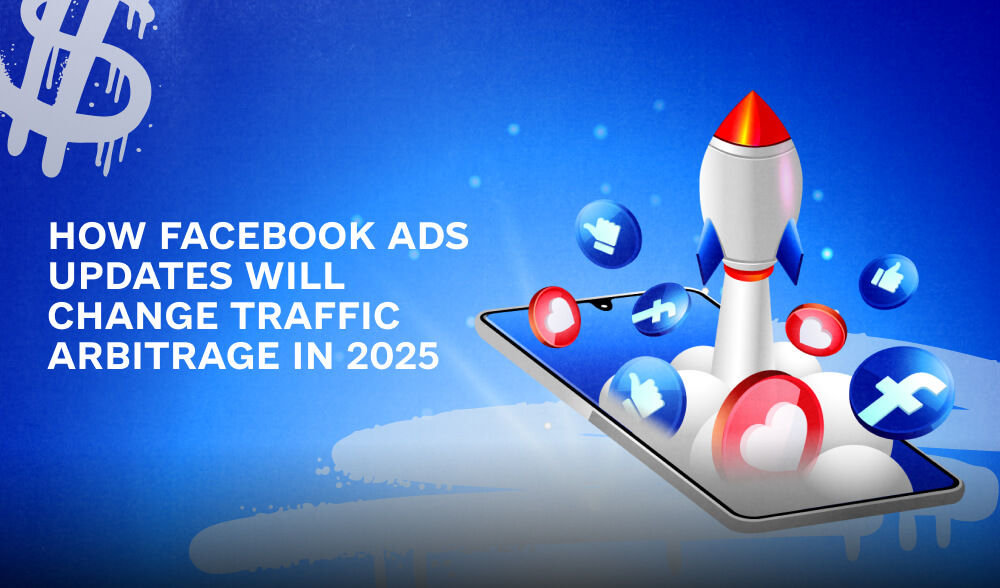In the world of traffic arbitrage, news of major platform changes always attracts attention. One of the industry highlights was the recent update to the Facebook Ads policy, which will go into effect in early 2025. The changes will affect not only ad formats and algorithms, but also how traffic is monitored and targeting capabilities. In this article, we’ll break down how Facebook’s new rules will affect arbitrageurs and what they need to consider in order to adapt.
🎁 Bonus: Get 10 free virtual cards from FlexCard(a service with virtual cards for traffic arbitrage and personal shopping) with promo code PANDA. 🧨 Sign up at link, mention the promo code support and get the cards for free
What will change in Facebook Ads in 2025?
Facebook (and its sister platforms Instagram and Messenger) has always been one of the most popular tools for arbitrageurs. This has allowed traffic arbitrage to take the lead among advertising models. However, as technology advances and privacy policies tighten in 2025, Facebook will implement several significant changes that will directly affect arbitrageurs:
- Stricter requirements for ad creatives. From 2025, Facebook will tighten its advertising requirements, especially in high-risk niches such as financial services, gambling, pharmaceuticals and more. Advertisers must provide additional documentation to verify their creatives, as well as more strictly enforce content policies.
How will this affect arbitrageurs?
Arbitrageurs working with offerers in these niches are now required to submit their creatives for review in advance, which could increase campaign launch times and content requirements. They will also be required to update their ads regularly to avoid violations. - Changes to targeting algorithms. One of the most significant changes was the reweighting of targeting algorithms. Facebook, in response to changes in data protection laws (such as GDPR), has restricted the use of some user data for ad targeting.
What will this mean for arbitrageurs?
It will be harder for arbitrageurs to set up precision targeting based on historical user data such as interests, behavior on other sites, and more. In order to compensate for these limitations, arbitrageurs will be forced to make greater use of contextual and location-based targeting. - Automation and campaign optimization via AI. In 2025, Facebook introduced new tools that use artificial intelligence to automatically optimize ad campaigns. The platform will offer more advanced algorithms to optimize bids, improve content quality and increase ROI.
How will this affect arbitrageurs?
For arbitrageurs who are scaling their campaigns, the new AI tools could be a real breakthrough. However, for maximum effect, you will need to pay attention to detailed automation settings and control that the system does not exceed the budget for uncontrolled experiments. - Traffic monitoring and anti-fraud systems. Facebook has also beefed up its anti-fraud mechanisms to combat fake clicks and bots. The platform has introduced new methods to track traffic sources and identify suspicious activity.
How will this affect arbitrageurs?
Arbitrageurs who work with low-quality or bot traffic may see their accounts banned or penalized for suspicious activity. This will require additional efforts to filter traffic sources, as well as monitoring the quality of attracted users.
How should arbitrageurs adapt to the changes in Facebook Ads?
- Focus on creativity. With the new rules for creatives, arbitrageurs need to become even more creative in creating ads so they don’t violate Facebook’s policies. It’s important to avoid overpromising, manipulating content, and following all ad design guidelines.
- Use more precise targeting. With targeting restrictions, arbitrageurs should switch to more contextual audience targeting methods, using real-time behavioral targeting (e.g., interests based on current user activity). It’s important to adapt strategies to new algorithms to minimize losses in targeting accuracy.
- More focus on anti-fraud. Due to the strengthening of Facebook’s anti-fraud mechanisms, arbitrageurs should pay special attention to traffic purity and quality. To avoid account blocking, it is important to carefully check traffic sources, especially if they are not mainstream or have historically been at risk of frod activity.
- Active use of AI and automation. Take advantage of new AI tools to optimize your ad campaigns, but always monitor the process. It’s important to regularly monitor campaign performance and metrics so that the system doesn’t start experimenting with uncontrolled bids or unnecessarily increasing budgets.
Perspectives and Forecasts
Facebook Ads updates in 2025 present both new opportunities and additional challenges for arbitrageurs. On the one hand, improved automation and optimization algorithms can significantly improve campaign performance, but on the other hand, strict rules on content and targeting will require more attention and adjustments. Arbitrageurs will need to adapt to the new conditions, taking into account changes in advertising, requirements for creatives and effective use of new tools.
For those who are ready for change and will closely monitor all innovations, the traffic arbitrage market in 2025 can offer a lot of new opportunities. All that is needed is to remain flexible and adapt quickly to changing platforms such as Facebook in order to continue to operate effectively and generate revenue.
So the updates to Facebook Ads are another example of how quickly the traffic arbitrage market is changing, and how important it is to be prepared for change in order to remain competitive and capitalize on new opportunities.
